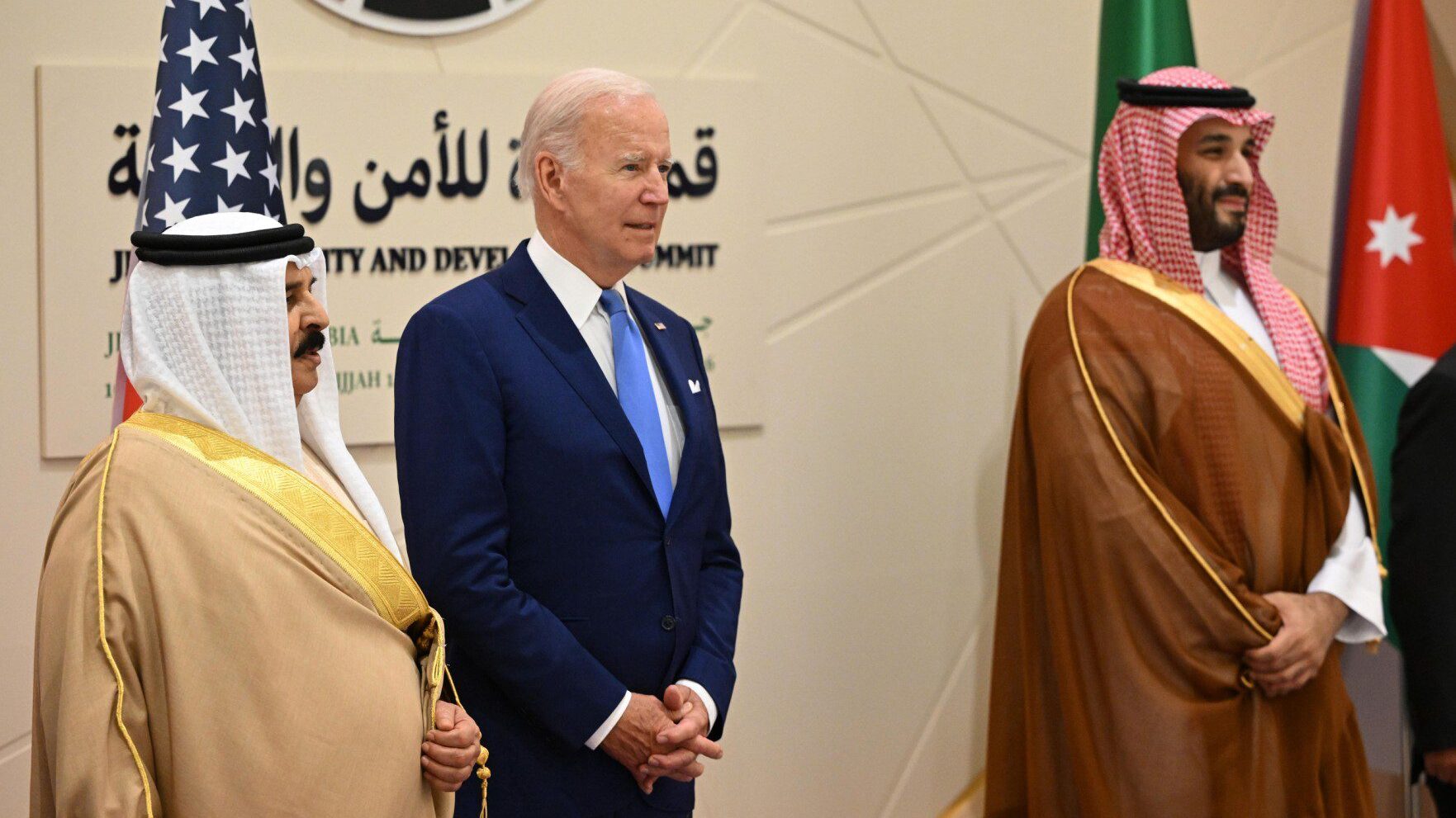
Bahrain’s King Hamad bin Isa bin Salman al-Khalifa, U.S. President Joe Biden, and Saudi Crown Prince Mohammed bin Salman pose together for the family photo during the Jeddah Security and Development Summit (GCC+3) at a hotel in Saudi Arabia’s Red Sea coastal city of Jeddah on July 16, 2022.
Photo: MANDEL NGAN / POOL / AFP
In yet another indication that tectonic geopolitical shifts are underway across the world, Saudi Arabia’s Crown Prince Mohammed bin Salman has told his close associates that he is no longer interested in “pleasing” the United States of America, a longtime ally of his country.
The news, revealed in a report published by the Wall Street Journal, comes as Saudi Arabia and members of the Organization of the Petroleum Exporting Countries (OPEC) surprised the world when they announced cuts in oil production amounting to 1.15 million barrels per day beginning next month and lasting until the end of 2023.
According to unnamed people familiar with the conversation, the Crown Prince stated that he wants “something in return” for anything he gives—or concessions he makes—to Washington.
The shift in attitude could potentially have significant implications for the U.S.-Saudi strategic alliance, which has remained relatively unchanged for decades. Furthermore, being a major oil producer and a regional power in the Middle East, any shift in Saudi Arabia’s political orientation toward the United States could cause significant ripple effects across the region and beyond.
The Crown Prince, Saudi Arabia’s de facto ruler, has previously expressed a sense of indifference toward U.S. President Joe Biden. In March of 2022, in an interview published in The Atlantic, bin Salman expressed similar sentiments.
The interview article reads:
We asked whether Biden misunderstands something about him. “Simply, I do not care,” he replied. Alienating the Saudi monarchy, he suggested, would harm Biden’s position. “It’s up to him to think about the interests of America.” He gave a shrug. “Go for it.”
The apparent deterioration in US-Saudi relations comes amid a recent worldwide trend toward de-dollarization with key, ascendent geopolitical actors, including but not limited to China, Russia, India, and Brazil all taking steps to reduce their dependence on and use of the U.S. dollar.
